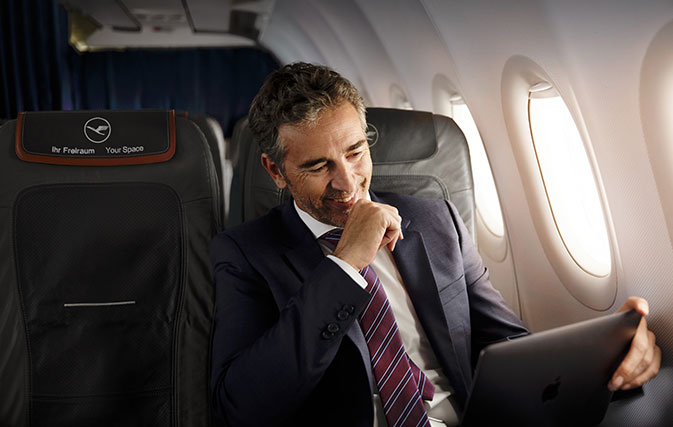FRANKFURT — Lufthansa Group’s passengers can start flying with a clearer conscious next year with Lufthansa Group Corporate Value Fares.
Starting January 2020, corporate customers can fly CO2-neutral on Lufthansa, SWISS and Austrian Airlines flights in Europe whereby carbon offsetting will be automatically included in fares.
The CO2 offsetting is carried out through certified climate protection projects of the Swiss foundation myclimate. The non-profit organization, with which the Lufthansa Group has been working for effective climate protection since 2007, guarantees that the projects not only reduce greenhouse gases but also contribute to the global sustainable development goals of the United Nations.
In cooperation with “Compensaid” and myclimate, Lufthansa, SWISS, Edelweiss Air and Eurowings offer their customers the opportunity to offset the unavoidable CO2 emissions of their flight. Austrian Airlines offers this option through its partner Climate Austria. Miles & More participants can also make an individual donation of between 3,000 and 50,000 miles to the myclimate foundation for each flight at miles-and-more.com under “Donate miles”, thus making a contribution to climate protection.
In addition, the Lufthansa Group is working on a tariff option without CO2 compensation for those companies that already have their own initiatives.
“The Lufthansa Group takes its responsibility for the environment very seriously and has already taken many initiatives to reduce the CO2 emissions of its aircraft. With the new Lufthansa Group Corporate Value Fares, we are now taking the next step and offering our corporate customers in all European markets an innovative solution for sustainable mobility. We have already made our own business air travel CO2-neutral,” says Heike Birlenbach, Senior Vice President Sales Lufthansa Group Network Airlines and Chief Commercial Officer (CCO) Hub Frankfurt.
For example, myclimate supports a reforestation project in Nicaragua, photovoltaic plants in the Dominican Republic and the dissemination of energy-efficient cookers powered by solar power and energy from biomass in Rwanda, Kenya, Madagascar and China. These measures reduce the fuel consumption of wood and coal, protect the local forests and contribute to the improvement of air quality in addition to the associated CO2 savings.
Over the next ten years, the Group will also put a new, fuel-efficient aircraft into service every two weeks on average.

